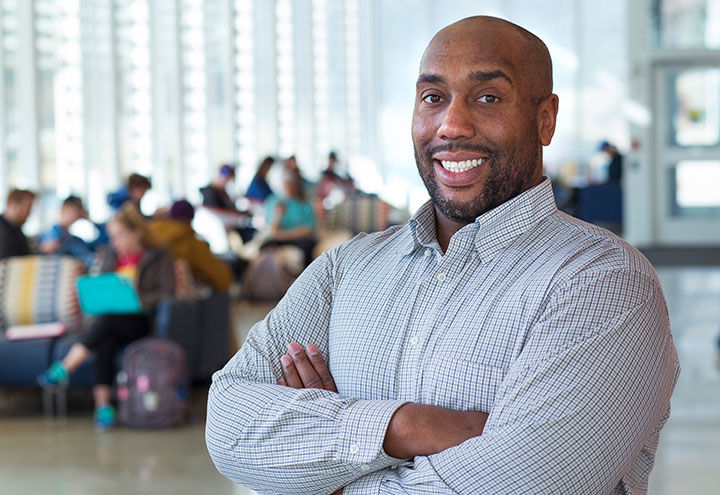Grant helps professor create diversity in mathematics
Michael Young, associate professor of mathematics, was recently awarded a grant to help his research on diversifying mathematics at Iowa State.
October 7, 2019
Diversity within higher education has historically been low, with women and people of color having a harder time getting into college and attaining degrees.
Michael Young, associate professor of mathematics, has recently been awarded a $1.5 million grant from the National Science Foundation that could help him to achieve his goals of increasing representation in mathematics. Awarded by the National Science Foundation’s competitive Education Core Research Program, this grant will support Young’s research until 2022. The project will also fund five graduate students who will contribute ongoing research to the project.
The National Science Foundation grant will fund a three-year study for Young. In this study, he will look at the experiences of Ph.D. mathematics students who come from underrepresented communities, such as people of color and women.
“It’s important to study the experiences of high-achieving students of color who report positive experiences in these programs,” Young said. “Their insight will allow us to aggregate the data and pinpoint the exact methods, conditions and strategies that enable these students to fully engage and thrive during their academic journeys.”
Young said he plans to formalize the study’s results and create a “best-practices manual” that will outline strategies for building and maintaining student populations from diverse backgrounds in math programs. He’ll also organize workshops where college decision-makers can learn how to attract and create support services for students of color.
As the project’s lead, Young is in charge of designing, developing and managing a survey instrument. He will collaborate with his team to identify and survey participants. The team will focus on finding interviewees who are minority students that have applied to, enrolled in or recently graduated from a math Ph.D. program.
Diversity within higher education is not just an Iowa State problem, so Young’s research has the possibility to extend beyond Iowa State’s campus and classrooms.
“Results from the study will arm graduate directors, admissions personnel and faculty with data-driven recommendations, tactics and programs, which will help them to expand diversity in their programs,” Young said.
For many diversity programs, their goals entail removing barriers to entry and creating more seats at the table for underserved populations and students of color — Young’s is no different.
“Attuning graduate schools to fit the needs of students of color could unfreeze that five percent statistic and increase it to 10 percent, 20 percent or 30 percent and beyond, which is ultimately the long-term goal of our research,” Young said.
















